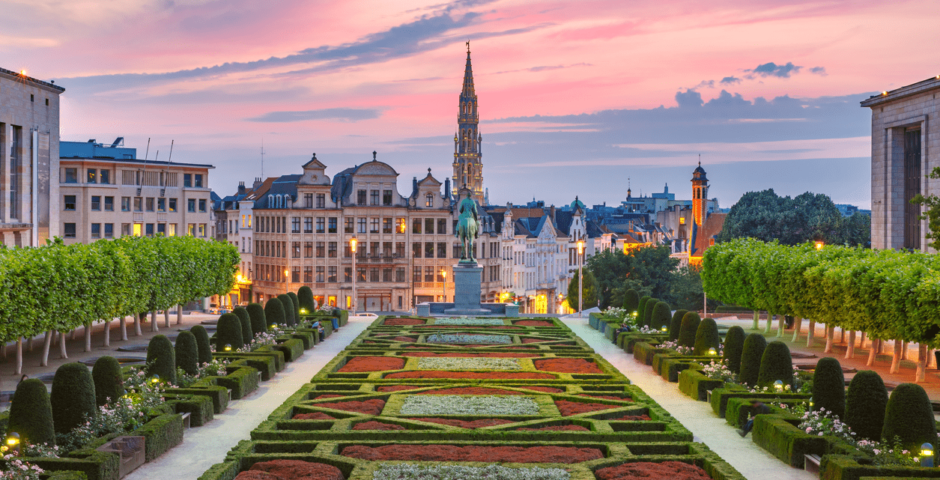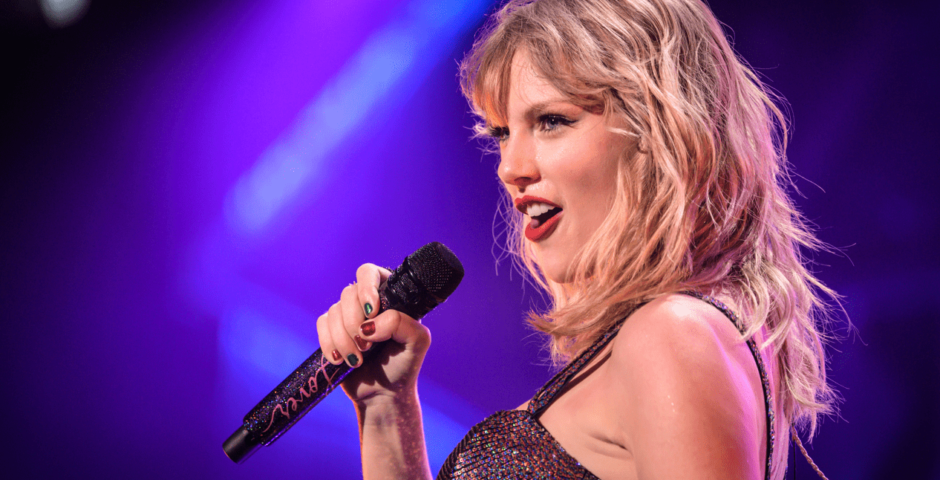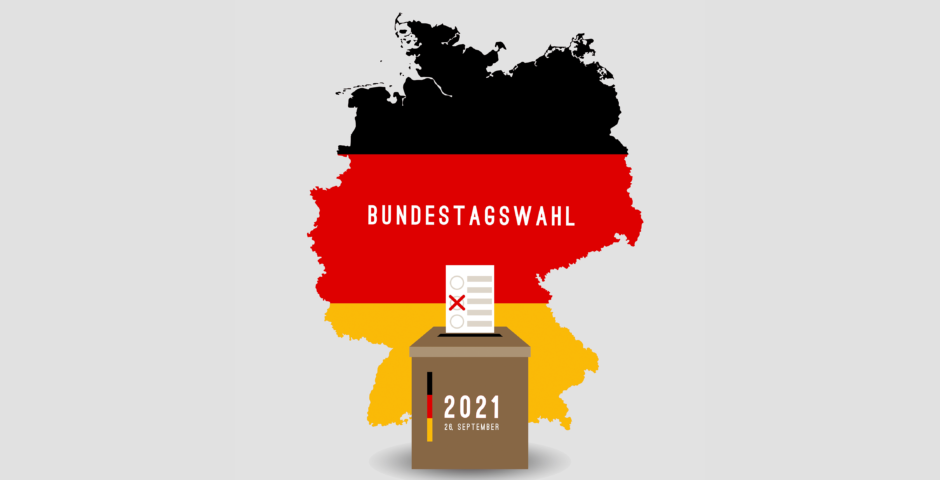Country Profile Belgium: Three Elections in One Day

Belgium’s willingness to compromise is under pressure in a year full of elections.
Ask the average person about their first association with the country of Belgium, and there is a good chance the answer will be chocolate, beer, fries or waffles. Or perhaps the national football team ‘The Red Devils’, the many cycling classics, or the festival culture. Beyond these cultural symbols, however, Belgium is a difficult country to understand, with a complicated governance structure. This is evident in the country’s upcoming election year: in 2024, Belgians will go to the polls for no less than five different elections. Therefore, to properly follow this important political year, it is necessary to understand how the Belgian system works and what issues are currently at stake. Although the focus is mainly on the European elections, this country profile is also suitable as a beginner’s guide for the entire election year.
The Belgian political system in a nutshell
Belgium is a federal state and thus consists of several layers of government, which creates a certain complexity. This system was designed in response to the great differences that exist in the country, with, of course, the different language groups being a particularly important distinction. Besides the predominantly Dutch-speaking Flanders and the predominantly French-speaking Wallonia, a German-speaking minority can also be found in the east of the country. Although these groups are also far from uniform, a general distinction can be made based on language and historical experience. In addition, it does not help that socioeconomic differences often overlap with the other identity aspects. It is therefore sometimes difficult to escape the impression that there are actually very different worlds living side by side in the country. For instance, there are huge differences in the character of the various regions and sometimes the players of the national football team cannot even understand each other due to language barriers.
The political structure must be able to accommodate these differences and thus consists of several levels. The federal level represents the entire country and here responsibilities include defence, justice and financial policy. The cabinet must contain an equal number of francophone and Dutch-speaking ministers. Currently, the cabinet consists of no less than seven different parties, in which the Liberals, Christian Democrats, Socialists and Greens are represented, led by Liberal Prime Minister Alexander de Croo. This composition is also known as the Vivaldi coalition, referring to the musical piece The Four Seasons. It symbolises the different political colours represented in the federal coalition.
Secondly, there are the regions: the Flemish, Walloon, and Brussels Capital Regions. These regions have a large degree of autonomy on many issues, especially in the field of spatial planning. To complicate matters further, there are also so-called communities, as political reflections of the three language groups mentioned. In Flanders, the distinction is so minimal that the Flemish Community and the Flemish Region operate within the same institutions. There is, however, a Walloon Parliament as well as a Parliament of the French-speaking Community. Finally, there is also a Parliament of the German-speaking Community. An important addition to the description of the levels is that they coexist and are not organised hierarchically. In other words, each layer has (on paper) its own set of tasks and responsibilities, on which the other layers have little to say. Finally, there are also the provincial and municipal levels, for which there will be elections in October.
The debate on the functioning and sustainability of the political system is as old as the country itself, although the current federal system was only formalised in 1993. An immediately salient example here, of course, is that Belgium holds the infamous world record for the longest formation period at 541 days. In some respects, then, Belgium resembles the European Union in miniature: processes that get stuck with some regularity, somewhat complicated structures, but also the ability to get out of deadlocks and find compromise. However, this willingness to compromise seems to be under increasing pressure. As explained later in this article, this may well play a crucial role in the upcoming series of elections.
Of course, Belgium is more than just a political system. With the port of Antwerp, for instance, the country has one of the most important ports in Europe. From an economic perspective, this is an important source of income and employment for Belgium. Besides the aforementioned Belgian specialities, the country has a rich tradition in cartooning, and many well-known comics come from Belgian authors. And although Belgium is a small and predominantly flat country, it still has a diverse landscape, including the coastal provinces and the green and hilly Ardennes. In every sense, then, it is a country with many faces.
Belgium and the European Union
Whoever says ‘European Union’ quickly says ‘Brussels’, and vice versa. Belgium is one of the founding fathers of the European integration process, and for many years Brussels has been at the heart of European policy development, parliamentary decision-making and diplomatic relations. More generally, Belgium has historically always had a strong reputation on the diplomatic front. The presence of the many European institutions in particular gives Brussels a unique and highly international character, although residents also experience problems regarding the livability of the city, for example in terms of mobility.
A question that often comes up is: ‘Why Brussels?’ There are some varying answers to this question, but one major reason was simply that Belgium starts with a ‘B’. When it came to deciding where to set up the institutions in 1958, it proved difficult to find an agreement on a location. Initially, a rotation-based system was chosen, with Belgium being the first to go in alphabetical order. Subsequently, the rotation system never actually got off the ground and numerous new institutions were added in Brussels, allowing the city to present itself as the unofficial capital of Europe.
As a country, Belgium also plays an important role in the Union, currently holding the rotating presidency of the Council of the European Union until 30 June this year. In addition, Belgium provides the current President of the European Council, in the person of Charles Michel. In the Commission, Didier Reynders is in charge of the Justice Department. Moreover, some 15% of the European Commission’s civil service is made up of Belgians. Finally, according to the latest Eurobarometer, Belgians themselves are relatively positive about the European Union. 50% of the population say they trust the European Union, compared to the European average of 47%. While this is not yet overwhelming, trust in the various European institutions is systematically several percentage points higher than the European average. In addition, 65% think that more decisions should be taken at the European level, a percentage well above the 55% European average. On the other hand, it is also interesting to note that Belgians’ knowledge about the functioning of the Union seems to be below average. Nevertheless, Belgium’s relationship with the European Union is a strong and deeply rooted one.
The 2019 European Elections
In 2019, there were 21 seats in the European Parliament to be divided among Belgian politicians (this year there will be 22). Belgium uses an electoral system of proportional representation. The country is one of the few to have compulsory attendance (this does not mean compulsory voting) during elections, and for the European elections this also applies. As a result, turnout is structurally a lot higher than in other European countries. A recent legal ruling also obliges 16- and 17-year-olds to show up in the upcoming elections, although the minister has already indicated that they will not be prosecuted in case of absence. In practice, there are rarely any consequences for adults if they fail to show up either.
Another important aspect of the Belgian system is the choice to hold multiple elections on the same day. Thus, also in 2024, federal, regional and European representatives will be elected on the same day (this year on 9 June). The idea here is to avoid a kind of permanent campaign mode and to make it easier for people to cast their votes. Another consequence, though, might be that the European elections, even more than is often the case anyway, get snowed under when it comes to the attention paid to them. By extension, it is also well known that national issues often play an important role in how people vote for the European Parliament. If both elections coincide, it may be even more difficult for voters to make this distinction. What is certain is that Belgians have a lot to choose from and will do so in large numbers.
Back to 2019. During these elections, one party was the clear winner: Tom van Grieken’s radical right Vlaams Belang. The party is best known for being nationalist and for its anti-immigration views. The right-conservative Nieuw-Vlaamse Alliantie in particular fell victim to this rise, although it remained the largest party in both the federal and Flemish and European elections. During the European elections themselves, no party stood out clearly, and the 21 seats were divided more or less evenly among no fewer than 12 different parties:
| Party | Seats |
| N-VA (right-wing conservative, ECR) | 3 |
| Vlaams Belang (far-right, ID) | 3 |
| CD&V (Christian democrats, EPP) | 2 |
| Ecolo (greens, The Greens/EFA) | 2 |
| Mouvement Réformateur (liberals, Renew) | 2 |
| Open VLD (liberals, Renew) | 2 |
| PS-SP (socialists, S&D) | 2 |
| CDH (now Les Engagés, centrist party, EPP) | 1 |
| CSP (Christian democrats, EPP) | 1 |
| Groen (greens, The Greens/EFA) | 1 |
| PTB-PVDA (far-left, GUE/NGL) | 1 |
| SP. A (now Vooruit, social democrats, S&D) | 1 |
Current political situation and outlook
According to a national poll, there are two main issues for which Belgians will go to the polls in June: migration and purchasing power. At the European level, the same two answers come up first. The elections will therefore revolve around these issues in particular. As in many other European countries, Belgium is also facing farmers’ protests. This has caused unrest in Brussels in particular, but farmers have also carried out blockades at the port of Antwerp, for example. Within the coalition itself, consisting of seven parties, there is also friction from time to time. A key question now is how voters will judge the parties that make up this coalition, as it is not easy to clearly distinguish yourself in such a composition. Another interesting point is that with Volt, a new party has entered Belgium’s political landscape. At the European level, this party is led by Sophie in ‘t Veld, with whom you can read an interview here.
As mentioned, Belgium is known for making compromises and working within complex structures, especially at the federal level. This makes it possible to represent diverse groups. On the other hand, of course, there is also a clear risk of a form of delay or even indecisiveness, and it becomes more difficult to distinguish parties from each other. As in so many European countries, the centre parties seem increasingly unable to convince voters and it is the more extreme flanks that may take away votes here. In Flanders, the far-right Vlaams Belang, recently confronted with media reports of the party’s links to Chinese spies, is still growing, while in Wallonia voters rather seem to be moving further and further to the left. This opposing movement again shows how different perceptions are within different parts of the country. Even Flemish independence is an issue to some extent, although the N-VA, currently the largest party, has abandoned it. They do, however, still favour confederalism, a very limited form of cooperation between otherwise quite autonomous entities. The French speakers are strongly opposed to this idea, and there is also very little enthusiasm among the Flemish.
The way the various elections are linked also creates interesting dynamics. In Flanders, for instance, a so-called cordon sanitaire against Vlaams Belang, or Vlaams Blok, as the party used to be called, has existed for quite a long time. This means that other parties have pledged not to cooperate with this party. The N-VA, which did not exist at the time and is therefore not part of the deal, is somewhat less adamant, also because a coalition between these two Flemish-nationalist parties might become possible for the first time. However, this in turn will then have consequences at the federal level: should N-VA join forces with Vlaams Belang, French-speaking parties have already clearly announced that they will rule out cooperation with N-VA. In short, the interaction between different elections does not always make things easier for voters.
How exactly the European elections fit into this whole game is hard to say. On the one hand, there is a risk that the status of ‘second-class elections’ will be further emphasised. At the same time, there is a clear commitment to action at the European level and there will be a distinction between the different voting lists, each of which operates with its own dynamics and set-up. Either way, there is plenty to choose this year for Belgians: not only for the various parliaments in the country but certainly also for that other parliament in the European quarter of Brussels.
Yannick has obtained a master’s at the Centre International de Formation Européenne and is currently pursuing a master’s in Crisis and Security Management at Leiden University.
Image: Shutterstock




